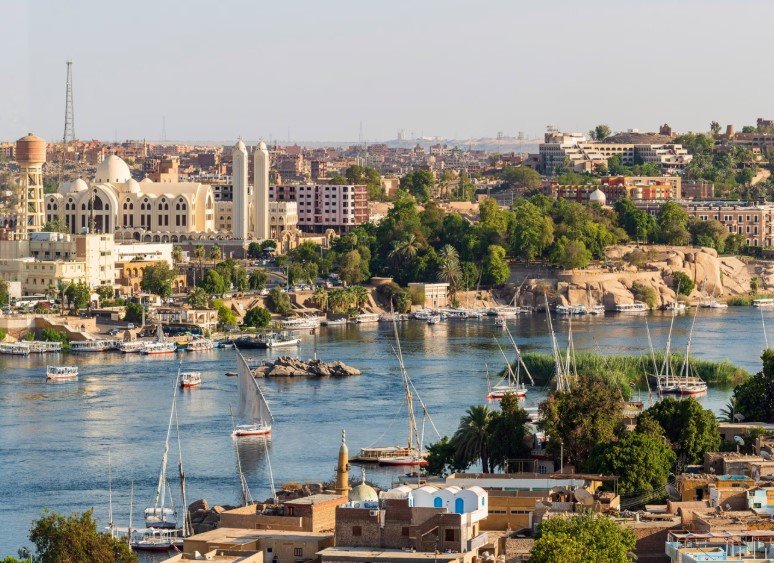New Level II advisory expected to boost tourism amid Cairo’s push for 30 million annual visitors by 2028
Egypt has welcomed a significant diplomatic win this weekend, as both the United States and the United Kingdom officially upgraded their travel advisories for the country, moving Egypt to Level II: Exercise Increased Caution. The revised guidance — released on Saturday, July 19 — places Egypt in the same advisory category as global tourism mainstays like France and Germany.
It’s a move that Cairo is embracing not just as a policy shift, but as a powerful endorsement of the country’s improving stability, security, and infrastructure.
A “notable positive step”
In a statement issued Saturday night, Tamim Khallaf, spokesperson for Egypt’s Ministry of Foreign Affairs, called the update a “notable positive step” and framed it as the result of years of concerted diplomatic efforts by the ministry and its embassies abroad.
“It’s a recognition of Egypt’s ongoing efforts to enhance its international standing,” Khallaf said. “This also reflects confidence in the safety and quality of the Egyptian tourism experience.”
Until this weekend, the U.S. Department of State had maintained Egypt at Level III: Reconsider Travel, a categorization that often dissuades cautious tourists and travel insurers. The Level II designation, by contrast, simply advises “increased caution” — the same language applied to dozens of major tourism hubs worldwide.

The U.K.’s updated guidance was similarly constructive, aligning with the Foreign, Commonwealth & Development Office’s broader efforts to support safe, regulated travel to North Africa.
A tourism tailwind
For Egypt’s economy — still heavily reliant on tourism — the timing couldn’t be better.
The North African nation is currently pursuing an ambitious national tourism strategy that aims to attract 30 million visitors annually by 2028. The latest data suggest that goal is within reach: in 2024 alone, Egypt hosted 15.7 million tourists, surpassing its previous record and delivering a critical boost to foreign currency reserves.
British travelers form a key segment of that growth. According to Khallaf, nearly 1 million Britons visit Egypt each year, lured by the country’s warm climate, ancient ruins, Red Sea resorts, and Nile cruises.
What changed?
The upgraded advisory status is seen as the result of multiple factors converging:
-
Security improvements in major tourist zones such as Luxor, Aswan, Sharm El-Sheikh, and the Red Sea coastline
-
Enhanced coordination between Egypt’s tourism police and international consulates
-
A visible soft power push from Egyptian diplomats, emphasizing hospitality, logistics, and transparency
-
Improved infrastructure, including airport modernization and high-speed train development between Cairo and tourist hubs
Additionally, regional de-escalation in the Israel-Gaza conflict and Sinai Peninsula has reduced geopolitical friction near Egypt’s eastern borders — a development quietly monitored by Western agencies.
Diplomatic dividends
Cairo sees this moment as more than just a public relations victory. It’s a diplomatic dividend after months of quiet lobbying, according to regional analysts.
“This is a clear signal that Egypt is being reabsorbed into the global travel mainstream,” said Amira El-Fekki, a political analyst based in Cairo. “These classifications aren’t changed lightly. For the U.S. and U.K. to make this move suggests a recalibration of how they see Egypt’s stability, especially in relation to other parts of the Middle East.”
Khallaf hinted that the move could also unlock insurance and investment opportunities in Egypt’s growing hotel and aviation sectors. With multinationals like Hilton, Accor, and Marriott doubling down on Egypt’s Red Sea coast and New Administrative Capital, the easing of travel warnings is expected to ripple into broader investor confidence.
Not just optics
Travel advisories are more than just suggestions for cautious backpackers. They shape everything from group tour decisions to corporate event planning, cruise ship docking policies, and even foreign aid disbursement guidelines.
For Egypt, which is racing to upgrade its ports, airports, and visitor infrastructure, the new Level II designation is a green light — and a powerful marketing tool.
“We now stand shoulder to shoulder with countries that are household tourism names,” Khallaf noted. “This is an invitation to the world to come and rediscover Egypt — safely, comfortably, and with confidence.”
